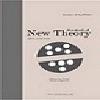REFINED SOFT SETS AND ITS APPLICATIONS
REFINED SOFT SETS AND ITS APPLICATIONS
Many disciplines, including engineering, economics, medical science and social science are highly dependent on the task of modeling and computing uncertain data. When the uncertainty is highly complicated and difficult to characterize, classical mathematical approaches are often insufficient to derive effective or useful models. Testifying to the importance of uncertainties that cannot be defined by classical mathematics, researchers are introducing alternative theories every day. In addition to classical probability theory, some of the most important results on this topic are fuzzy sets, intuitionistic fuzzy sets, vague sets, interval-valued fuzzy set and rough sets. But each of these theories has its inherent limitations as pointed out by Molodtsov. For example, in probability theory, we require a large number of experiments in order to check the stability of the system. To define a membership function in case of fuzzy set theory is not always an easy task. Theory of rough sets requires an equivalence relation defined on the universal set under consideration. But in many real life situations such an equivalence relation is very difficult to find due to imprecise human knowledge. Perhaps the above mentioned difficulties associated with these theories are due to their incompatibility with the parameterization tools. Molodtsov introduced soft set theory as a completely new approach for modeling vagueness and uncertainty. This so-called soft set theory is free from the above mentioned difficulties as it has enough parameters. In soft set theory, the problem of setting membership function simply doesn’t arise. This makes the theory convenient and easy to apply in practice. Soft set theory has potential applications in various fields including smoothness of functions, game theory, operations research, Riemann integration, probability theory and measurement theory. Most of these applications have already been demonstrated by MolodtsovMany disciplines, including engineering, economics, medical science and social science are highly dependent on the task of modeling and computing uncertain data. When the uncertainty is highly complicated and difficult to characterize, classical mathematical approaches are often insufficient to derive effective or useful models. Testifying to the importance of uncertainties that cannot be defined by classical mathematics, researchers are introducing alternative theories every day. In addition to classical probability theory, some of the most important results on this topic are fuzzy sets, intuitionistic fuzzy sets, vague sets, interval-valued fuzzy set and rough sets. But each of these theories has its inherent limitations as pointed out by Molodtsov. For example, in probability theory, we require a large number of experiments in order to check the stability of the system. To define a membership function in case of fuzzy set theory is not always an easy task. Theory of rough sets requires an equivalence relation defined on the universal set under consideration. But in many real life situations such an equivalence relation is very difficult to find due to imprecise human knowledge. Perhaps the above mentioned difficulties associated with these theories are due to their incompatibility with the parameterization tools. Molodtsov introduced soft set theory as a completely new approach for modeling vagueness and uncertainty. This so-called soft set theory is free from the above mentioned difficulties as it has enough parameters. In soft set theory, the problem of setting membership function simply doesn’t arise. This makes the theory convenient and easy to apply in practice. Soft set theory has potential applications in various fields including smoothness of functions, game theory, operations research, Riemann integration, probability theory and measurement theory. Most of these applications have already been demonstrated by Molodtsov.
